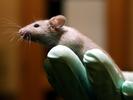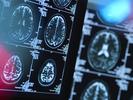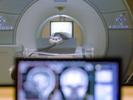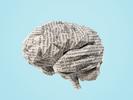Jon Hamilton appears in the following:
A drug for HIV appears to reverse a type of memory loss in mice
Sunday, June 12, 2022
A recent study finds an HIV drug can reverse memory loss in aging mice. This type of memory helps humans do things like associate a name with a face and typically starts to decline in middle age.
Researchers are developing prosthetics that have a sense of touch
Thursday, June 09, 2022
A team at the University of Pittsburgh is working to connect prosthetic arms and legs with the nervous system to give patients a sense of touch.
A drug for HIV appears to reverse a type of memory loss in mice
Saturday, May 28, 2022
In mice, the HIV drug maraviroc restored a system that links new memories that are made around the same time. The finding could help treat memory problems in people.
An HIV drug appears to boost memory in mice, study shows
Wednesday, May 25, 2022
A new study finds that an HIV drug can reverse memory loss in aging mice. This type of memory helps humans do things like associate a name with a face. It typically starts to decline in middle age.
A substance found in young spinal fluid helps old mice remember
Monday, May 16, 2022
A team at Stanford University has reversed memory loss in old mice by flooding their brains with spinal fluid taken from young animals. The finding may hold promise for Alzheimer's research.
Youthful spinal fluid could help treat Alzheimer's disease, study suggests
Wednesday, May 11, 2022
The memory of aging mice improved when they received a substance found in the spinal fluid of young animals and young people. The finding suggests a new approach to treating Alzheimer's disease.
Brain scans may reveal a lot about mental illness, but not until studies get bigger
Tuesday, April 26, 2022
Scientists are using MRI scans to understand how mental illness shows up in the bran. But new research raises concerns that existing studies are not reliable because the sample sizes are too small.
Brain scan studies need to get much bigger to offer insight into mental illness
Monday, April 25, 2022
Researchers say most brain scan studies are too small to explain complex human traits like intelligence or mental health. Meaningful insights will require studies of thousands of brains, not dozens.
A lead COVID test investigator on how well at-home rapid tests work for BA.2
Monday, April 25, 2022
NPR's Mary Louise Kelly talks with Dr. Wilbur Lam, a lead investigator assessing COVID-19 diagnostic tests for the U.S. government, about detecting the omicron BA.2 subvariant with rapid tests.
Encore: Concussions don't necessarily hurt your ears, but they can hurt your hearing
Tuesday, April 19, 2022
People who sustain a concussion can develop an unusual hearing problem. Their ears work fine, but their brain struggles to process sounds. (Story first aired on All Things Considered on Nov. 3, 2021.)
Medicare has decided to sharply limit coverage of Aduhelm, a new Alzheimer drug
Friday, April 08, 2022
Medicare officials announced on Thursday that the health insurance program for older Americans will sharply limit coverage of a costly and controversial new Alzheimer's drug.
Scans reveal the brain's early growth, late decline and surprising variability
Thursday, April 07, 2022
A study of more than 120,000 brain scans shows rapid growth before age 2 and accelerating decline after age 50. The results may one day help pick up abnormalities in the developing brain.
In jumpy flies and fiery mice, scientists see the roots of human emotions
Wednesday, April 06, 2022
Scientists are trying to understand PTSD and other human disorders by studying emotion-related brain circuits in animals, which research suggests may have a lot in common with the human brain.
This form of memory loss is common — but most Americans don't know about it
Friday, March 18, 2022
Mild cognitive impairment, a common brain condition, can be an early sign of Alzheimer's disease. But most people don't know the symptoms. And some may mistake it for normal aging.
Why its important for more Americans to know about mild cognitive impairment
Wednesday, March 16, 2022
Mild cognitive impairment, a condition that may be a precursor to Alzheimer's disease, affects more than 12% of people 60 and up. Yet a survey found 82% of Americans know little or nothing about it.
Do masks in school affect kids' speech and social skills?
Tuesday, March 15, 2022
Scientists say that for most children, masks in school aren't a major obstacle to learning or socializing. Students in classrooms find other ways to connect.
Experts weigh in: Do masks interfere with a child's ability to learn or socialize?
Monday, March 14, 2022
Some parents have argued that masks need to come off in schools because it affects kids' speech and social development. Is that really true? Researchers address this question from several angles.
Art and music therapy seem to help with brain disorders. Scientists want to know why
Saturday, February 19, 2022
Arts therapies appear to ease brain disorders from Parkinson's to PTSD. Now, artists and scientists have launched an effort to understand how these treatments change the brain.
Watch these robotic fish swim to the beat of human heart cells
Thursday, February 10, 2022
Tiny, robotic fish powered by human heart cells suggest that scientists are getting closer to their goal of building replacement hearts from living tissue.
A brain circuit tied to emotion may lead to better treatments for Parkinson's disease
Monday, February 07, 2022
The symptoms of Parkinson's disease can vanish briefly in the face of stress or a strong emotion. Now scientists are searching for a treatment based on this phenomenon, a form of the placebo effect.










